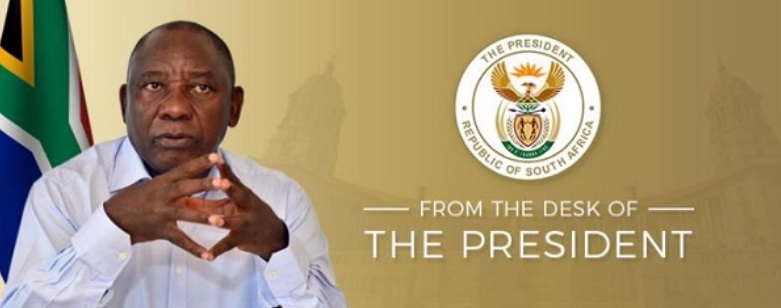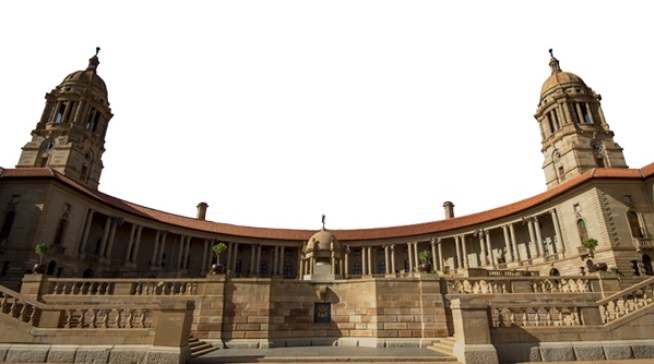2 December 2024

Dear Fellow South African,
Tomorrow, 3 December, marks the International Day of Persons with Disabilities.
It is an opportunity to reflect on the progress we have made with respect to advancing the rights of persons with disabilities. It is also an opportunity to consider what we still need to do to implement inclusive policies and to elevate the representation of persons with disabilities in our society.
Our Constitution and Bill of Rights enshrines the right to equality for all. It prohibits discrimination on the grounds of disability.
Approximately 3.3 million people in our country live with some form of physical or intellectual impairment.
Many of them have to contend with stigma, stereotyping, prejudice and other forms of social exclusion. A lack of proper understanding about disability continues in some communities.
Some people see having a disability as a ‘curse’ or the result of witchcraft. This sometimes has horrific consequences. People with albinism, for example, have been victims of violence and even murder.
Persons with disabilities of face an ‘invisible barrier’ in access to public spaces, amenities and facilities. The lack of wheelchair ramps, braille signage, suitable toilet facilities and devices that cater for the hearing impaired pose a challenge for persons with disabilities.
Most South Africans rely on public transportation, and this too can be a frustrating experience for disabled persons. Minibus taxis, for example, have limited capacity for accommodating wheelchairs and other mobility aids.
As a result of these serious challenges, many in the disabled community find themselves poor, unemployed and excluded. They suffer ill-health and poor quality of life.
Under democracy we have been steadfast in our determination to ensure that persons with disabilities are supported to lead lives of dignity.
The Constitution obliges the state to take legislative and other measures to promote the achievement of such equality, and to protect persons disadvantaged by unfair discrimination.
We introduced employment equity laws to promote equal opportunity in the workplace. By law, employers have to ensure that at least 2% of their workforce comprises persons with disabilities.
We amended labour legislation to broaden the scope under which persons who sustain a temporary or permanent disability at work can apply for compensation. The Department of Employment and Labour has labour desks to provide specialist employment advice services for persons with disabilities.
One of the most far-reaching legislative reforms is the Compensation for Occupational Injuries and Diseases Act. Among other things, this makes mineworkers and former mineworkers eligible for compensation if they sustained permanent disability in the course of their employment.
To ensure that measures to advance the empowerment of disabled persons receive attention at the highest levels of government, a Presidential Working Group on Disability was established in 2016. It brings together government departments and about 45 civil society organisations from the disability sector. It is tasked with guiding the implementation of policy to advance the rights of the disabled.
One of the key issues the Working Group has been lobbying for since its inception was the recognition of South Africa Sign Language as an official language. This was achieved in 2022 with a constitutional amendment.
Another issue occupying the Working Group is gender-based violence. Women and girls with disabilities are often vulnerable to sexual and other forms of abuse.
As part of strengthening the fight against gender-based violence, the previous administration passed a series of laws that, among others, provide for harsher penalties for sex crimes against persons with a mental disability.
The Presidential Working Group continues to support government-wide efforts to ensure that programmes to support people with disabilities are adequately resourced and, importantly, that they are informed and guided by representatives of the disability sector.
We have always sought to promote the principle of ‘nothing about us without us’.
We continue to make progress in education. The network of special needs public schools across the country has been expanded. the Department of Basic Education continues to take steps to ensure the public school environment is more inclusive. The Working Group has been advocating for Early Childhood Development facilities for children with disabilities to receive equal attention and resources.
At this year’s Transport Summit on Universal Mobility, I underscored the need for public transport to be made more accessible for persons with disabilities.
Cities like Johannesburg and Cape Town offer specialised transportation services for people who have physical disabilities. The rejuvenation of passenger rail will also go a long way, with many of the new urban commuter trains able to accommodate the needs of passengers with disabilities.
Though we have made progress with respect to legislative and policy frameworks, realising the rights of the disabled is a society-wide effort.
The civil society organisations doing commendable work in advocating for the rights of persons with disabilities in communities deserve our full endorsement and support.
As communities, we must educate ourselves about disability. We must be part of education and awareness-raising to counter myths about disability.
Employers must make a greater effort to employ persons with disabilities. According to the Commission on Employment Equity, most employers are below the 2% target, and are only achieving around 1.2%.
Employers are also urged to comply with the Code of Good Practice on the Employment of Persons with Disabilities by taking measures to remove physical barriers preventing disabled persons from working in safety and comfort.
Unions need to ensure that persons with disabilities are protected from discrimination and that their rights are upheld.
Business is called upon to lend corporate support to endeavours to advance excellence in the disability community. This includes providing more study scholarships to persons with disabilities.
A positive example in this regard is the corporate support for our Paralympic Team. These stellar athletes took glory in this year’s Games in Paris – bringing home two gold and four bronze medals at the Games. The success of our Paralympians bears witness to their personal courage, their resilience and their perseverance against considerable odds.
As a country we should be proud of the progress we have made on disability rights, but we need to do more to ensure persons with disabilities enjoy equal rights.
As we observe the International Day of Persons with Disabilities, I call on all South Africans to build a country in which everyone is included, represented, accommodated and able to achieve their dreams.
With best regards,
President C. Ramaphosa
